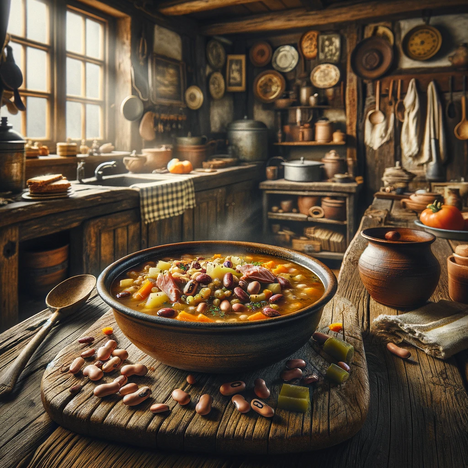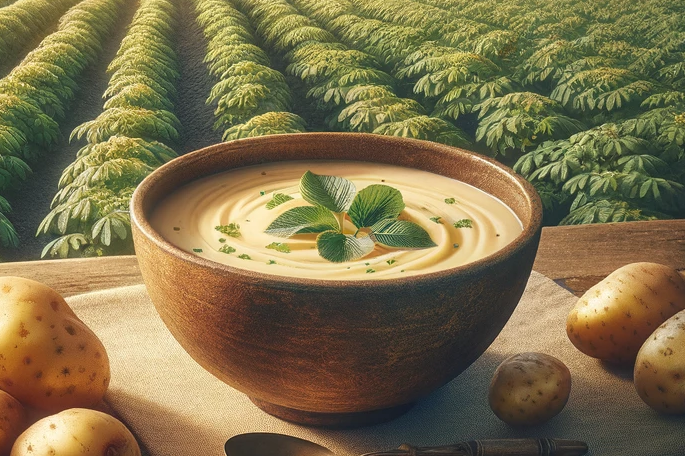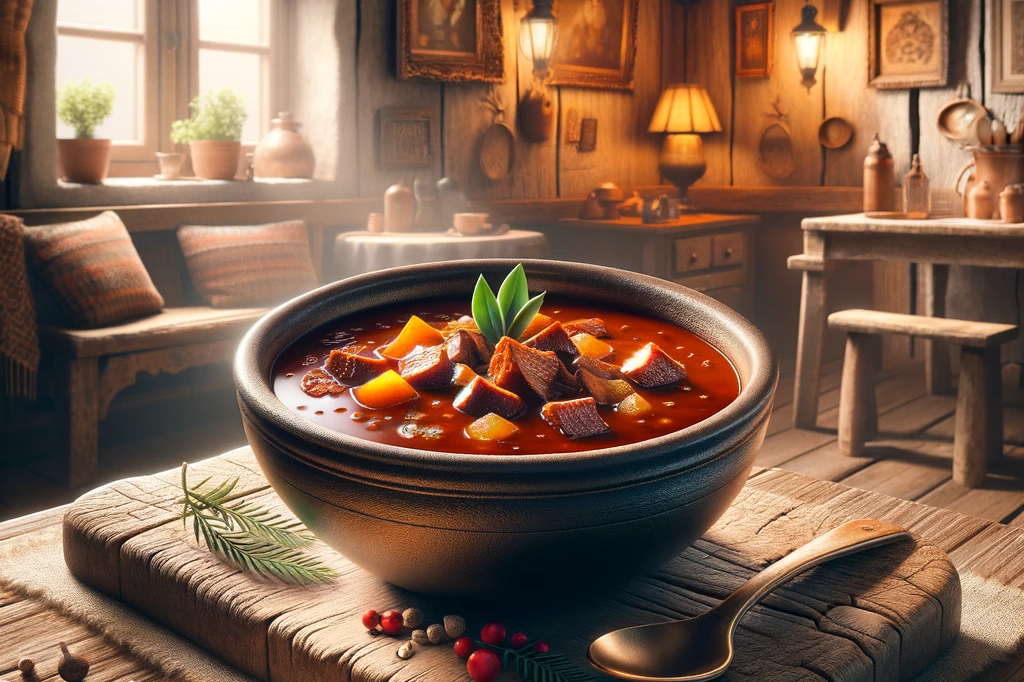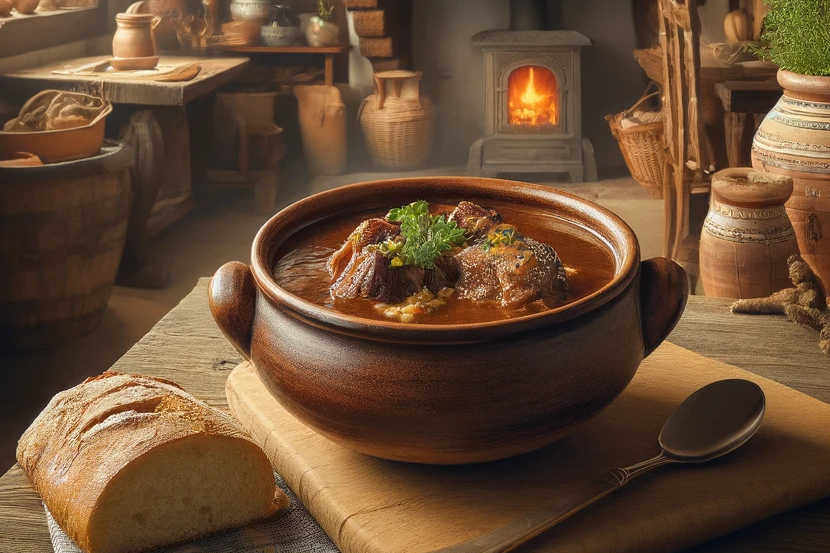Bean soup

What is bean soup?
Bean soup is traditionally made from dried or fresh beans and can contain a variety of ingredients, including vegetables, herbs, spices and sometimes meat. Beans are known for their high protein, fiber and essential nutrient content, making them an excellent ingredient in the human diet. The specific ingredients and spices vary depending on the recipe and cultural tradition.
Benefits: Could bean soup be good for dogs?
High nutrient content
Beans provide an excellent source of plant-based protein, fiber, vitamins and minerals such as iron, magnesium and potassium. These nutrients can contribute to a dog's overall health, especially in promoting a healthy digestive system.
High fiber diet
The fiber found in beans can support healthy bowel function and help regulate blood sugar levels. A high-fiber diet can also help with weight management in dogs by promoting a feeling of satiety.
Disadvantages: The risks of bean soup for dogs
Spices and onions
Many bean soups contain spices, onions or garlic, which can be toxic to dogs. These ingredients can cause gastrointestinal upset and, in the case of onions and garlic, can lead to destruction of red blood cells, which can result in anemia.
Flatulence and digestive problems
Although fiber offers many benefits, beans can also cause bloating and digestive problems in dogs. A sudden switch to a high-fiber diet can lead to discomfort and gas.
Salt and fat content
Homemade or commercial bean soups can contain high amounts of salt and fat, which are harmful to dogs. Excessive salt consumption can lead to excessive thirst and strain on the kidneys, while high fat content can contribute to digestive problems and obesity.
Bean soup, when prepared carefully, can be a nutritious addition to a dog's diet. However, it is important to avoid potentially harmful ingredients such as onions, garlic, salt and excessive fat. Introducing new foods into a dog's diet should be done gradually to minimize the risk of digestive upset. If in doubt, it is always advisable to consult a vet before introducing new foods into a dog's diet. Your dog's health and well-being should always be a top priority, and a balanced diet is the key to a long and happy life by your side.
Properties 12
Are you looking for other ingredients with a specific property?
Just click on them to find more.
If you notice any signs of hypersensitivity or poisoning in your dog, you should see your vet immediately. We are not a substitute for a vet, but we try to be as accurate as possible. Every dog reacts differently and we recommend you get a second opinion or consult your vet if in doubt.
Stay healthy and take good care of your four-legged friend!😊
Similar to Bean soup
Potato soup is a creamy, often pureed soup that consists mainly of potatoes. Other common ingredients are onions, garlic, vegetable stock, milk or cream and sometimes bacon, leek or cheese. The...
Pea soup, a traditional dish that has been appreciated in many cultures for centuries, consists mainly of peas, water or broth and various spices. At first glance, it appears to be a harmless and...
Goulash soup, originally from Hungary, has established itself as a popular dish worldwide. It typically consists of beef, peppers, onions, tomatoes, potatoes and a range of spices, which together...
Oxtail soup is a hearty, tasty dish traditionally made with pieces of oxtail, vegetables such as carrots, celery and onions, as well as various herbs and spices. The oxtail is cooked slowly until...



